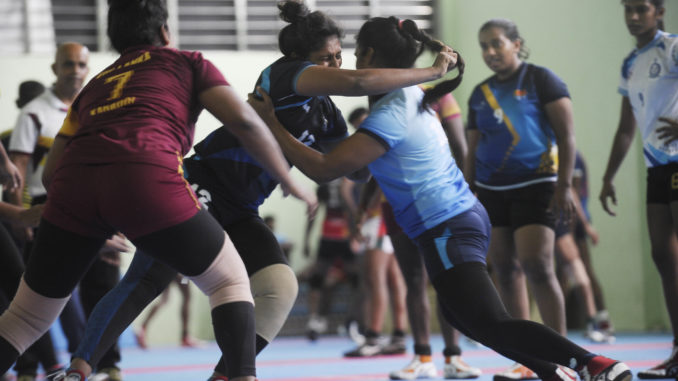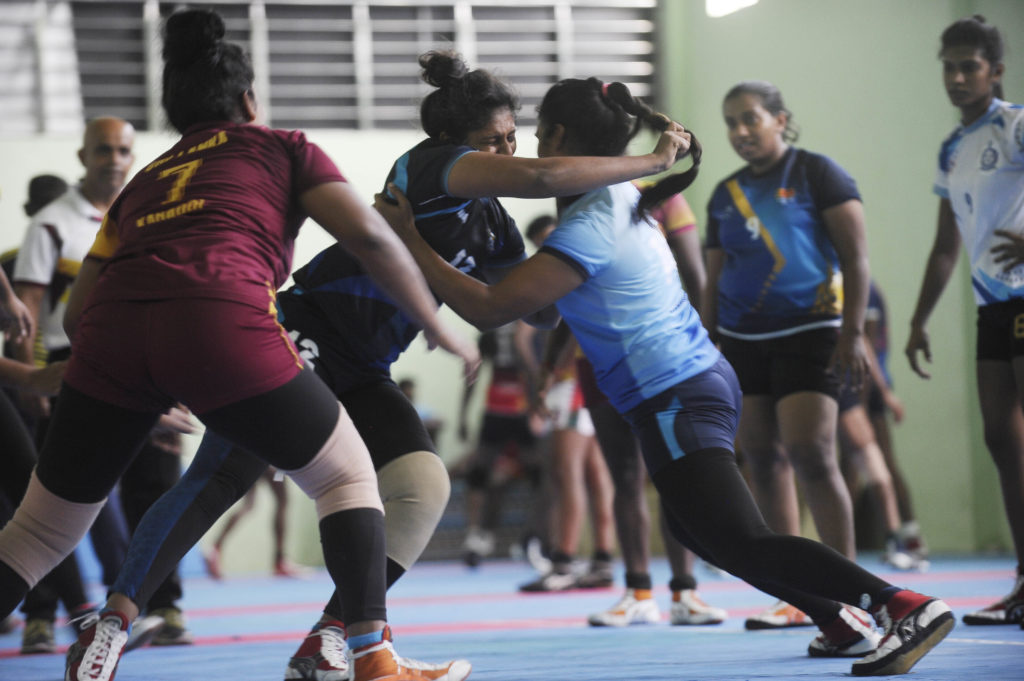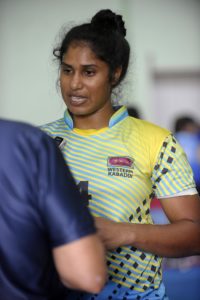

When Madushani Chaturika was 13, back in 2005, she decided to take the advice of her netball teacher at Henegama Central College in the Gampaha District and take up a sport called kabaddi.
It was a momentous move for today Chaturika is the captain of the Sri Lanka women’s kabaddi squad to the Asian Games in Jakarta and Palembang this month – a gang of girls tipped to win a medal by none other than their expert Indian coach who has been impressed with the team since joining them a month ago.
“I’m very confident that this team can win a medal for Sri Lanka at the Asian Games,” says J. Udayakumar, a gold-medal winning coach with the Indian men’s national team at the 2002, 2006 and 2014 Asian Games. If such a proficient person believes in Chaturika and her teammates, Sri Lanka seem to have an Asian Games medal in kabaddi in the bag this month.

“These girls are rough and tough and expect them to win a bronze medal at least. I have been very impressed with what I have seen. They have agility, strength and power, all necessary attributes to play kabaddi,” Udayakumar points out.
Kabaddi is a traditional Indian sport which is very physical. It is played by two teams of seven players each over a period of 15 or 20 minutes with a five-minute break. The aim is to score points by raiding into the opponent’s court, tag out as many players as possible without getting caught and then return to his half without being tackled by the defenders. And all of this has to be done while holding his breath – the raider must loudly chant ‘kabaddi’ to confirm to the referees that the raid is done on a single breath.
We watch raiders Sajini Jayasinghe and Manojini Sithumini try and tag defenders. The Sri Lankan women’s team are hard at practice under the close scrutiny of Udayakumar who has been deputised by the Indian Kabaddi Federation to help the local counterparts.
“I have been here for a short time and in this period, I have seen plenty of commitment from the Sri Lanka women’s team. They might have to improve a little bit on their fitness though for it is a key aspect. But I will leave that up to them for my role is to work on team strategy and have a game plan,” Udayakumar reveals.
Coming from a man who has coached India in more than 100 internationals, including two World Cups, it will give much hope to local kabaddi officials who have pinned their hope of this sport winning a team medal at the August 18-September 2 Asian Games.
“We are all hopeful of winning a medal. At present our ranking in Asia is fourth. At last year’s Asian Championships, we finished third behind India and South Korea and we are aiming to do better with the technical help we are getting from the Indian coach,” says a confident Chaturika.
When she had just turned teenager, her netball teacher told her to change sports because her husband was involved in kabaddi and was looking to set up a team at Henegama Central College.
“It was a big difference but I liked the sport. The speed and running I needed for netball helped me make the transition smoothly to kabaddi,” Chaturika added.
Two years after taking up kabaddi, Chaturika found herself in the Sri Lanka national pool. In 2010, she was part of the national team which won a bronze medal at the South Asian Games in Dhaka, Bangladesh. This is the first time a women’s team will represent Sri Lanka at the Asian Games.
The entire 18-strong squad in the national pool training for the Asian Games is drawn from the Armed Forces. Nine are from the Air Force, six from the Navy and three from the Army.
Chaturika, who is an Able Rating and has been in the Navy for nine years added: “Kabaddi is not a popular sport in Sri Lanka but I hope if we can win a medal, it will help boost the profile of the sport. But whatever happens I have to be thankful for kabaddi which has given me the opportunity to represent my country.”

Be the first to comment